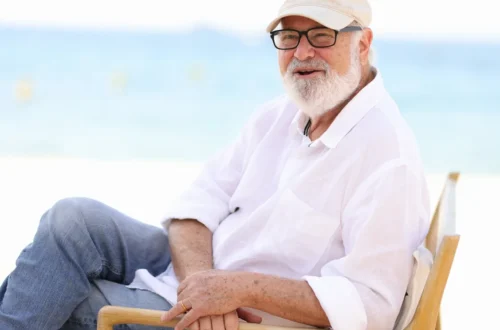Kentucky Governor Andy Beshear is making early moves that suggest he is preparing a campaign for the 2028 Democratic presidential nomination. This month, Beshear has been on the ground in South Carolina, a key early primary state, meeting with Democratic activists, union members, and faith leaders in a series of public appearances and private gatherings. His message is clear: Democrats need to reclaim their voice in the South by talking like “normal human beings,” avoiding activist jargon, and focusing on pragmatic policies that resonate with working-class voters.
Beshear, a two-term Democratic governor in a traditionally red state, is emphasizing his record on bipartisan governance, infrastructure investment, education, and healthcare expansion. At a recent union hall event, he declared, “If I believe I’m somebody who can heal this country… I’ll run.” His tone is measured, hopeful, and deeply grounded in the political reality of places like Kentucky, where he has built a winning coalition of moderates, independents, and disaffected Republicans. In South Carolina, he’s stressing his pro-union credentials and his faith-driven appeal, telling crowds that his brand of leadership can win not just swing states, but the heart of the country.
Beshear is not the only Democrat eyeing 2028 with serious intent. South Carolina, which played a decisive role in Joe Biden’s 2020 primary comeback, is once again seeing early traffic from potential contenders. California Governor Gavin Newsom has already campaigned in the state, holding fundraisers and drawing praise from influential figures like Rep. Jim Clyburn. Congressman Ro Khanna has also made inroads, particularly with Black voters, as he builds a potential progressive coalition. Maryland Governor Wes Moore, Minnesota Governor Tim Walz, and Secretary of Transportation Pete Buttigieg have all been quietly networking in early-voting states as well.
The field is expected to be large, potentially rivaling the crowded primaries of 1992 and 2004. With no clear Democratic front-runner for 2028 and uncertainty surrounding whether President Biden will endorse a successor, the race is wide open. Analysts predict up to 30 candidates could emerge, creating an ideological spectrum that stretches from centrist pragmatists to unapologetic progressives.
At stake is the direction of the Democratic Party itself. Moderates like Beshear and Newsom argue that the path to victory lies in broadening the party’s appeal to disillusioned working-class voters. They are calling for a focus on infrastructure, healthcare, and restoring faith in government competence. On the other hand, progressives like Khanna and New York Rep. Alexandria Ocasio-Cortez, should she decide to run, are pushing for bold economic reforms, anti-monopoly legislation, and climate action, arguing that the party must energize younger and more diverse voters.
South Carolina is emerging as the proving ground for these competing visions. Beshear’s visits have been marked by a back-to-basics tone, speaking plainly and connecting with audiences through stories of economic hardship, faith, and family. He sharply criticizes Republican tax cuts and rural hospital closures while advocating for increased education funding and Medicaid expansion. His emphasis is on unity and electability, often citing his track record in Kentucky as evidence that Democrats can still win in places long thought lost to the GOP.
With the Democratic primary calendar still in flux, potential candidates are wasting no time. Every early visit, handshake, and speech in South Carolina is part of a larger audition for the national stage. Andy Beshear’s foray into the state signals more than just a listening tour—it’s the soft launch of a campaign that could redefine the Democratic strategy for winning back the South. The race for 2028 has already begun.




